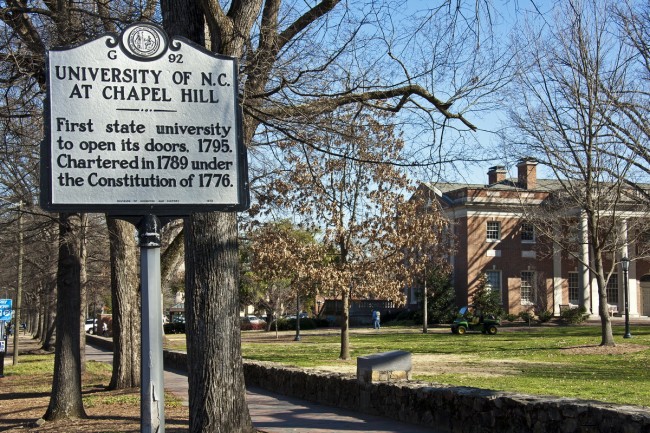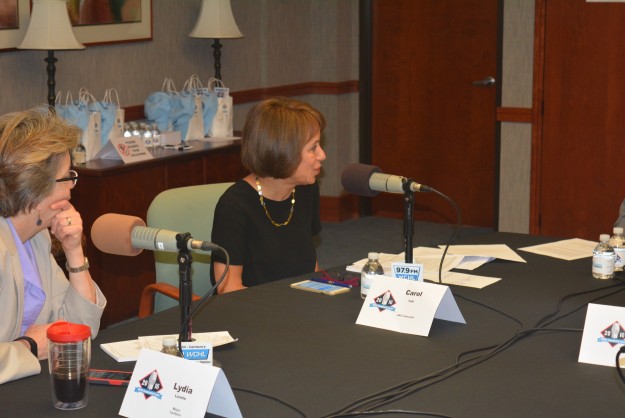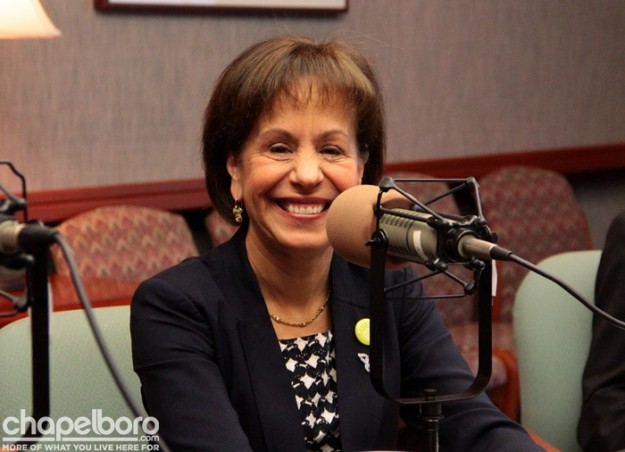The University of North Carolina has submitted its response to the NCAA in connection to the amended notice of allegations the university received earlier this year.
After submitting the response to the NCAA on Monday, the university released the public copy on Tuesday.
The amended notice of allegations is the latest step in the years-long fallout of the long-running academic scandal at UNC involving “paper classes” – classes that rarely or never met and had a grade assigned based on one paper at the end of the semester. The classes were open to all UNC students but were disproportionately populated with student-athletes.
UNC is still facing five Level I infractions in the amended notice of allegations, which are the most severe the NCAA can levy.
UNC is challenging the validity of three of those five allegations.
Listen to UNC AD Bubba Cunningham’s teleconference with reporters from Tuesday:
In the first allegation, the NCAA alleges that Jon Boxill knowingly provided extra benefits to student-athletes on the women’s basketball team in her capacity as an academic counselor and acted in an unethical manner. The university acknowledged that Boxill provided extra benefits, but UNC “disagrees that Boxill engaged in unethical conduct” as defined by the NCAA’s bylaws, “even though her actions fell short of the University’s own standards.” UNC is arguing that the circumstances, as the university sees them, would drop that from a Level I to a Level III infraction.
Boxill continued to deny any wrongdoing in her response to the NCAA.
The university is accepting allegations two and three – that two faculty members heavily implicated in the scandal, Julius Nyang’oro and Deborah Crowder, would not cooperate with the NCAA investigation.
The NCAA alleges that UNC failed to monitor Boxill and the department overseeing academic support for student-athletes. The university is accepting that it failed to monitor Boxill, but is arguing that there are “jurisdictional and procedural issues” barring the allegation beyond that scope. That would drop the allegation from Level I to Level II.
The fifth allegation from the NCAA is a charge of lack on institutional control, which UNC is rebutting entirely. The university “disagrees with this allegation” in its response. UNC says the issues being alleged to bring about lack of institutional control charges relate to topics that are under the purview of the university’s accrediting body – SACSCOC – rather than the NCAA. That accrediting body restored UNC to full standing earlier this year after placing the university on probation for one year.
Blake Hodge broke down UNC’s response with Aaron Keck Tuesday on WCHL.
Ultimately, the university is accepting that it failed to monitor certain aspects of the institution, which resulted in a long-running scandal. But UNC says that is under the jurisdiction of SACSCOC and not the NCAA.
In the executive summary of the response to the NCAA, UNC admits to wrongdoing saying the university has “accepted responsibility for what happened in our past and made numerous apologies to our campus community, to the citizens of North Carolina, and to all those who care about the institution.”
But in the conclusion of the response, UNC makes it clear the university will challenge the NCAA if certain sanctions are sought as a result of the hearing by the Committee on Infractions that the university feels are outside of the NCAA bylaws.
“If the hearing panel determines that penalties are to be imposed, the University believes that they must be tied directly to a particular violation of NCAA bylaws and, in all instances, must be applied in a fair and consistent manner. It would be an unprecedented application of NCAA rules to impose a penalty on institutional employees, student-athletes, or sport programs that are not the subject of, or even referenced in, an allegation in the ANOA.”
The NCAA Committee on Infractions will likely hear the case in October before issuing a ruling, possibly in early 2017.
WCHL’s Art Chansky discussed UNC’s response with Aaron Keck on Tuesday.
UNC athletics director Bubba Cunningham released the following statement after the university’s response was made public:
“As a member of the NCAA, we carefully considered the appropriate University response based upon a thorough analysis of the NCAA’s Constitution and bylaws and all involved parties’ mutual desire to adhere to these important standards. We identified key issues and provided factual responses for each allegation with the goal of bringing this case to a fair and just conclusion.’’
UNC Chancellor Carol Folt also issued a statement on Tuesday:
“Our work to reach this point has been extensive, including implementing wide-ranging reforms and taking substantial actions to ensure transparency and integrity across the University. The necessary scrutiny and self-examination has made us a stronger University, and the resolution of this case will be vital to our moving forward.”





Comments on Chapelboro are moderated according to our Community Guidelines